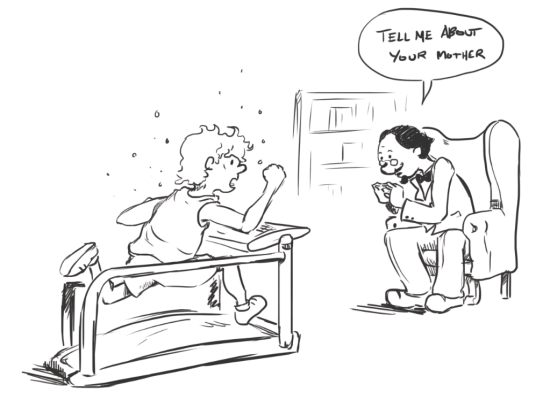Print Edition: February 6, 2013
Writing or talking about sports tends to be almost exclusively concerned with goal-scorers, bench bosses and ascribing authorship, but only so far as what shows up on the statistics sheet rather than the process behind the thought, the mind behind each action. Where the real story in sports can often be found is what goes into action, resulting in quantifiable results or not, rather than the arrangement of ideas that forge a better athlete.
Roger Friesen, sports psychologist for UFV’s varsity teams and professor at UFV, stands at the point between personal development (learning in the classroom) and their outcomes (what we see on the court, field, water).
In a typical week, Friesen holds a classroom-type session, focusing on an aspect of mental preparation and getting to know any number of UFV’s varsity teams. The process of gaining ground and watching student athletes leave after their five years means the experience is one Friesen describes as of “ebbs and flows,” but this constant change, the ability to meet and impact the numbers of recruits and veterans that shift from year to year is also where the job comes to be rewarding. “I love it as much as I did when I started 25 years ago,” Friesen said.
Learning can only be assessed through application, and the tests of the athlete are physical, which is why Friesen is often a presence at practices and an observer at games. At both events Friesen can look for “teachable moments,” challenges and improvable areas different to each athlete that don’t present themself in the classroom through talk, but can be brought forward and worked through there – the two sides feed into each other.
The university brings with it a distinct situation for research and a special setting for those learning from it. Friesen also teaches and has developed sports psychology courses at UFV, and spoke of the openness that he encourages in office hours, in dealing with multiple aspects of learning and in working with the varsity teams. On the athlete side, if there’s anything unique about working and growing in this environment, “It’s the pride they feel, to be a part of something big, and playing in front of friends and family members,” Friesen said.
This pride might be visible to those outside the athletic sphere as coming from wins or when attendance rises, but Friesen holds a different perspective: “Right now women’s basketball is getting media attention, because they’re doing well, but there’s a lot more going on that isn’t, and not necessarily a team as a whole.” Friesen downplayed the importance of media attention, which comes and goes at this level based on success, and spoke for achievements that impact players on a personal scale, stories that may not get told but are no less important.
It is not just sports either, as Friesen works on two fronts. In addition to athletes preparing for competition outside of UFV (the Olympic and Pan Am games), he also is involved in a variety of contexts including emergency response. However, Friesen stressed “the thing that’s common to all of them” – psychology here is not beholden to categories, and so whether student, athlete or other performer of duties and actions under pressure, the way the mind works extends beyond organized sports.
From his position, Friesen has been able to see enormous change take place – from pre-university to the sports and psychology programs’ current state, but on a personal level, Friesen also spoke to his own initial development in his undergraduate days, changing course from the architecture of spaces to the mind: “I came across it by accident, but once I knew that sports psychology was a real thing I could work with, that was it.”



